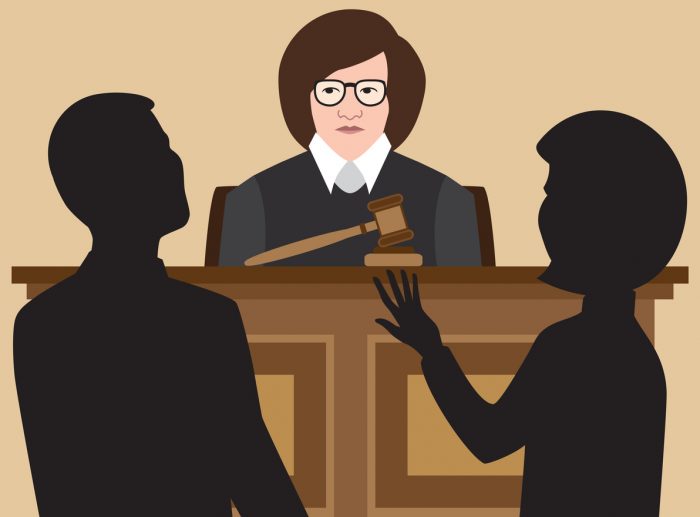
You will probably have to go to court if you’ve been charged with a criminal offence.
However, It’s up to the Magistrate to hear the evidence and decide if you’re guilty and what your penalty should be.
All criminal cases start in a Magistrates Court. This court deals with summary offences and some less serious indictable offences. More serious indictable offences are usually sent to the District or Supreme Court by a process called a committal.
Here are some pivotal factors that you or your legal representative can do in order to assure the best outcome of your matter.
1. Timely Plea of Guilty

Some Australian states have made it part of their state-based law that entering an early plea of guilty will also mean that the court sentencing you might give you a discount on the penalty they impose. For example, in Queensland, the Penalties and Sentences Act sets out that a plea of guilty should be taken into account when imposing a sentence. Where a guilty plea has been entered, there are variations of how much discount can be given for a ‘timely’ or ‘early’ plea of guilty.
It is, however, important to remember that Queensland courts have made it very clear that working out how to punish you is not a ‘mathematical’ process and the discount will depend on several other factors. This could include the way the Magistrate or Judge views the matter as a whole. As a general rule, a penalty handed down by a court must be appropriate for the offence, and the offender also.
It goes without saying that in admitting your guilt (particularly if you are in fact, guilty of the offences you are charged with), showing remorse and taking your punishment as a responsible member of society might be reasons that could result in a more lenient sentence. This as opposed to pleading not guilty, putting the police and the court to the time and expense of a trial and being found guilty anyway.
2. References

Having strong reference documents to enhance your image as a person to the court allows for the right steps to be taken in order for a more successful outcome.
References are important to help the court determine whether a specific punishment may be more beneficial to impose when comparing it to another. A person that lacks any references or other documentation does not give the court any background or personal aspects and attributes that may positively affect the outcome of the penalty. For more information visit this website.
3. Courses

There are a range of courses that are on offer by many community providers. For example, here at Legal Advisory Service we represent clients charged with a variety of traffic offence charges, and in response we encourage almost all of our clients to complete the Queensland Traffic Offenders Program or QTOP. Each course is different, however they each share the same goal, that being to provide education and rehabilitation to the offenders ensuring that these incidents do not have the opportunity to occur again.
Specifically, the QTOP course aims to utilise a variety of reality checks and impact methods to deter traffic offenders from re-offending, as well as provide expert information of an educational nature about the dangers of drunk driving and unsafe driving for the purpose of deterring traffic offenders from re-offending.
These courses should be recommended by your legal representative to be completed, ensuring this will give the court some material work with in your favour. Hopefully, the court forms the view that are you are remorseful. Additionally, by demonstrating to the court that not only are you willing to take action to correct your behaviour, you have already done it this shows the court that you might be a low-risk offender that does not require ongoing supervision.
Here at Legal Advisory Service we recommend to all clients that have been charged with offences that where completion of some type of course (be it traffic offenders, anger management, trauma therapy) will significantly benefit the court outcome, that the person immediately seek out a trusted provider of such a course and get it underway as soon as possible.
4. Choosing a Lawyer to Prepare Your Matter

If you’ve been charged by Police and have a court hearing date in a Magistrates Court, it is important that you have sought legal advice and assistance prior to your first court appearance.
It goes without saying that you want the best possible outcome when it comes to any matter that is before the court. However, approaching these matters without seeking appropriate legal advice puts you at risk of making decisions without the proper advice and information that can negatively impact the outcome. Your lawyer should make sure that you are familiar with your individual rights, as well as giving you advice on how best to proceed. Your lawyer should be able to tell you exactly which material they want to receive from you to be assembled into a compelling package of defence material to be given to the court.
Some matters that consist of complex charges can become rather in-depth or challenging for a person without legal training to digest and understand. It would only make sense to seek legal advice to ensure that the best outcome can be achieved for your case.
Attaining good legal representation in a timely manner will give the best chance for you to be in somewhat control of your matter, as it can be incredibly overwhelming for some people.
Many firms offer criminal representation, few specialise in criminal and traffic matters, the team leverage our knowledge and expertise help individuals protect their interests in these areas. We have been protecting our clients’ rights with over 100 years of combined experience in the exact issues you are facing.
5. Presentation and Appearance at Court

When attending court, be very mindful of your physical appearance. Most importantly, arrive well groomed and a good rule of thumb is to dress as though you would for an important job interview. When entering the Court, put your phone on silent, take any glasses that may be resting on your head off and nod as you enter and exit the courtroom. Address the Magistrate as your Honour or, at least, Sir/Madam.
















